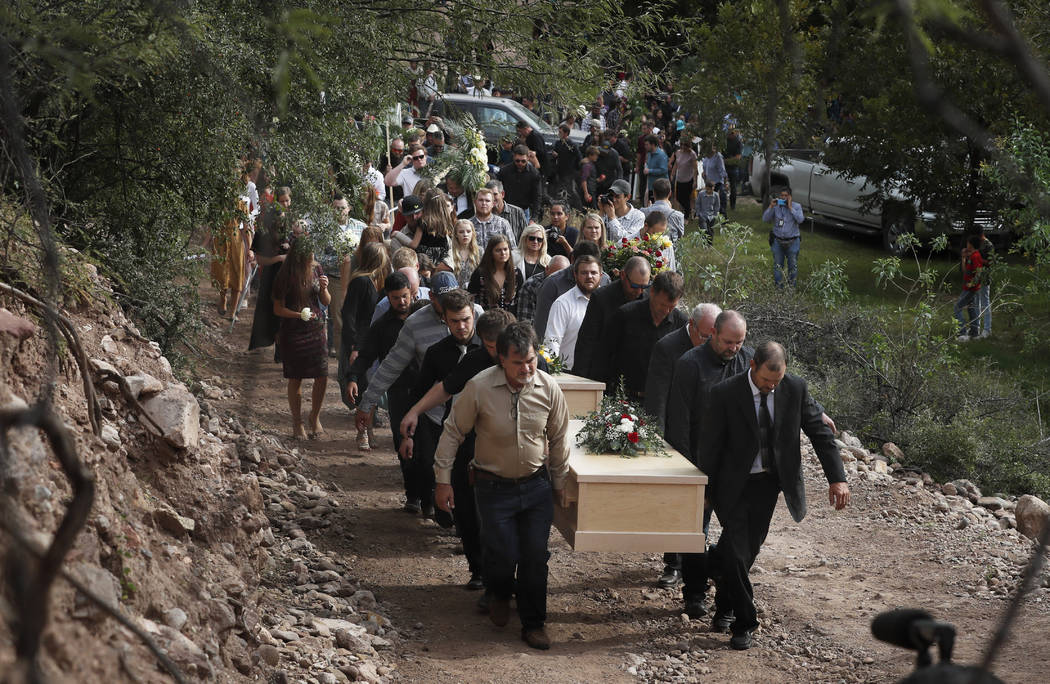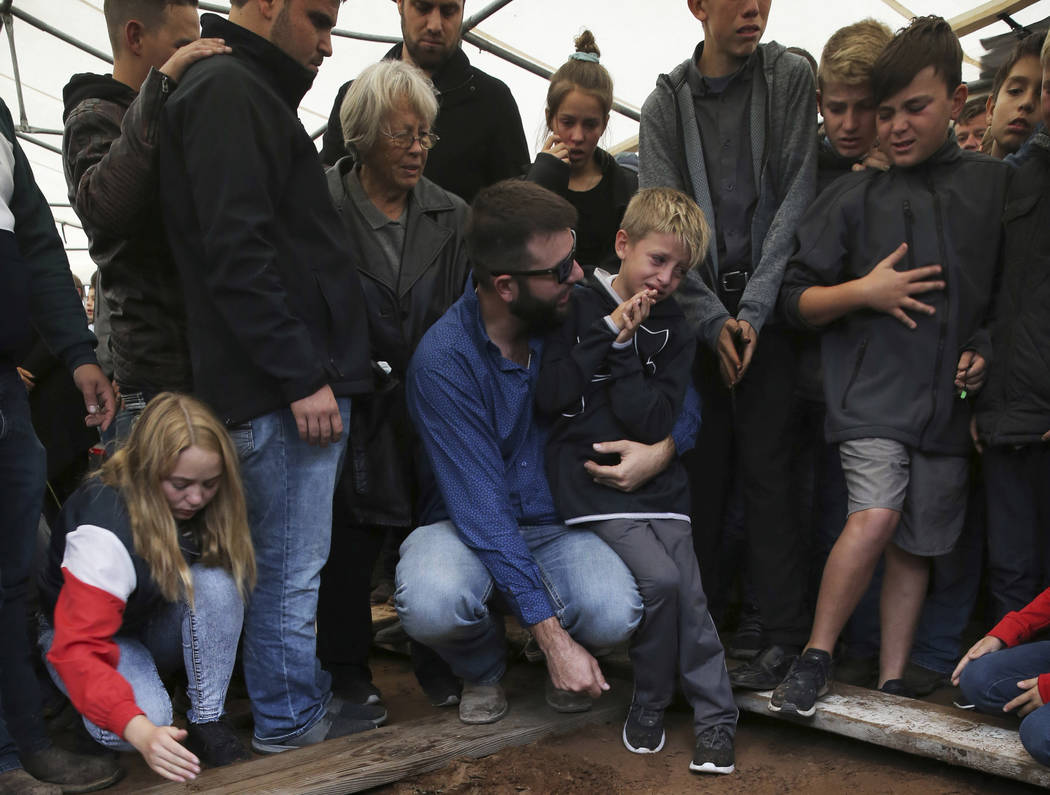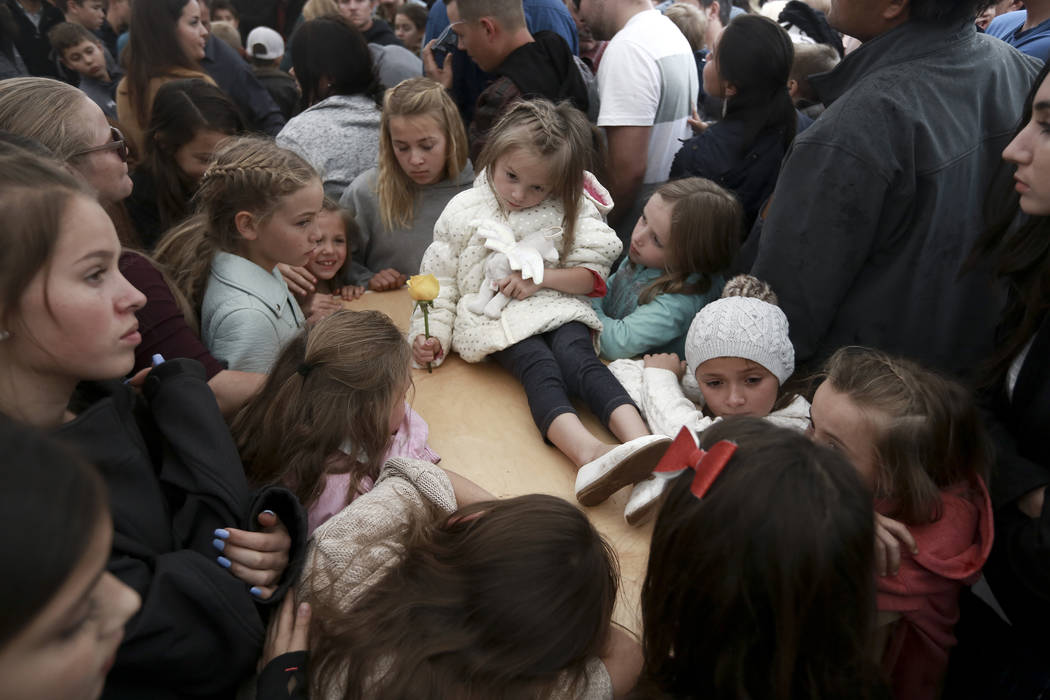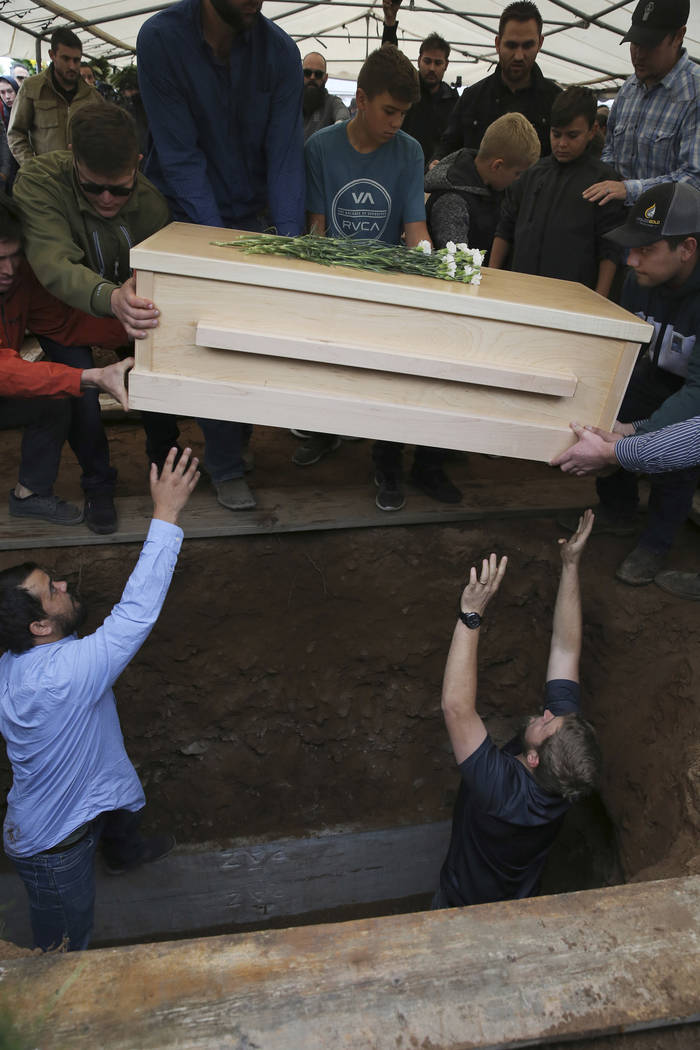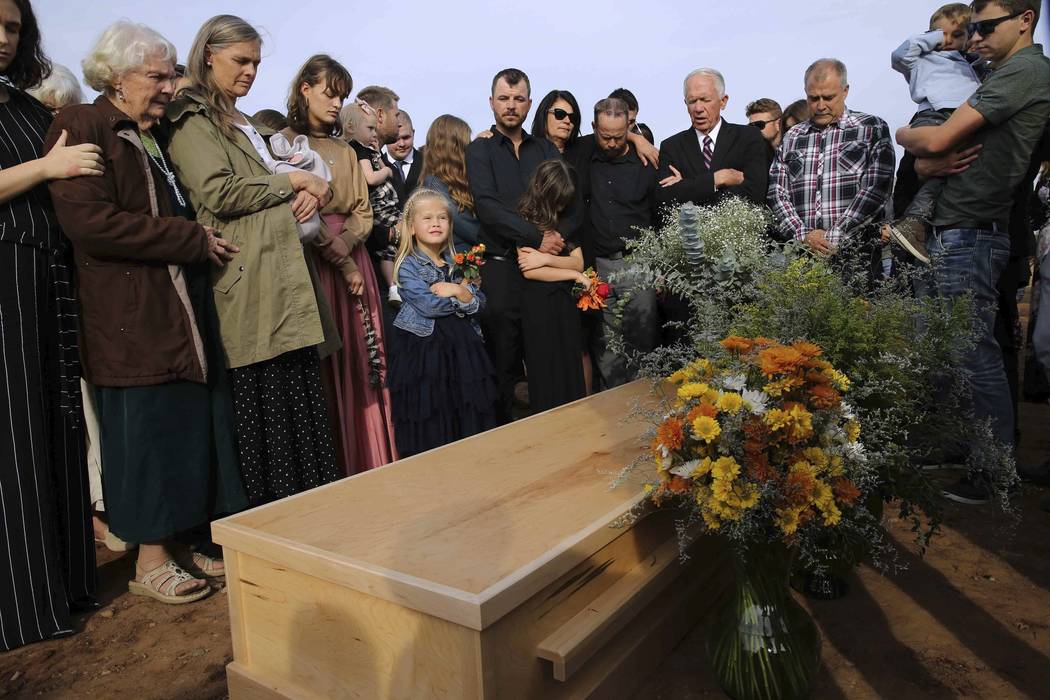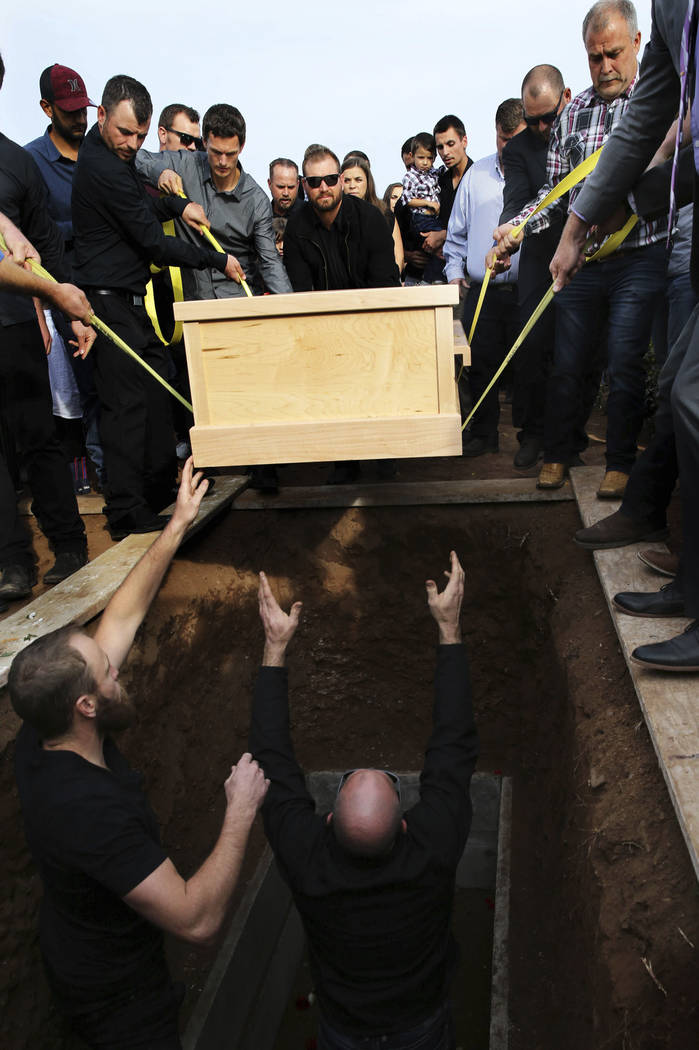Brazen Mexican massacre touches many of Trump’s campaign themes
WASHINGTON — It is knowing what happened to the little ones that sends tremors of outrage even among those who never knew them.
They were six children traveling on a Monday morning with their three mothers — each mom driving an SUV over dirt roads in northern Mexico — when they were ambushed. Those who got away by hiding in the arid brush saw or heard their mothers die and their siblings being murdered and later learned that 8-month-old twins had died strapped into car seats.
The following morning, President Donald Trump reacted on Twitter: “A wonderful family and friends from Utah got caught between two vicious drug cartels, who were shooting at each other, with the result being many great American people killed, including young children, and some missing.”
“This is the time for Mexico, with the help of the United States, to wage WAR on the drug cartels and wipe them off the face of the earth,” Trump added in a follow-up tweet.
The brazen, brutal murders of the nine dual U.S.-Mexican citizens touched many key issues that define Trump, his 2016 campaign and his bid to win reelection in 2020: border security, drug cartels, innocent victims who did nothing wrong.
It was his reaction to the killing of Kate Steinle, who was fatally shot as she strolled along the San Francisco waterfront with her father and a family friend in July 2015 by an undocumented immigrant, that made candidate Trump stand out in the GOP field.
The shooter, who later was acquitted on murder charges after he testified he mistakenly picked up the gun and accidentally shot Steinle, had been convicted of seven felony charges in the United States and deported to Mexico five times.
Thus shooter Jose Inez Garcia-Zarate served to reinforce what Trump said about illegal immigration when he announced his candidacy for president that June. Mexico, Trump contended, was “sending people that have lots of problems, and they’re bringing those problems with us. They’re bringing drugs. They’re bringing crime. They’re rapists. And some, I assume, are good people.”
‘Beat out the monsters’
Months before a vote was cast in the 2016 GOP primary, Trump stood out as the Republican most likely to challenge San Francisco’s sanctuary city policy and immigration enforcement under President Barack Obama that critics said allowed noncitizen career criminals to enter and remain inside the United States.
Presidential adviser Kellyanne Conway told the Las Vegas Review-Journal that she was there when Trump learned about the Mexican massacre. Trump, she said, “took swift action by calling the Mexican president and saying, ‘You’ve got to root out these vicious cartels and we’re happy to help you beat out the monsters.’ ”
Conway said that Trump “is unafraid to use the full power and the resources that America has when it comes to stopping monsters, whether they be Mexican cartels or (Islamic State leader Abu Bakr) al-Baghdadi or pushing back on (Syrian leader) Bashar Assad, who gasses his own people.”
Trump spoke to Mexican President Andrés Manuel López Obrador on Tuesday and offered aid “to ensure the perpetrators face justice,” according to a White House readout of the call.
But López Obrador rejected the offer. War, he later told reporters, “is not an option.”
“Language matters and words matter,” said Duncan Wood, director of the Wilson Center’s Mexico Institute. By using the word “war,” Wood said, Trump’s rhetoric undermined his mission by suggesting “to the Mexican audience that the United States is considering intervention.”
National security hawks bristled at López Obrador’s response. Sen. Tom Cotton, R-Ark., told Fox News that the Mexican president’s “hugs not bullets” approach “may work in a children’s fairy tale,” but in the real world, “the only thing that can counteract bullets is more and bigger bullets.”
Cotton also suggested that special forces be deployed into Mexico a few dozen miles from the Southwest border.
Judicial Watch, a watchdog group, advocated designating Mexican cartels as foreign terrorist organizations.
‘Cartels are emboldened’
For its part, the Trump administration has left the door open for more aid. What does that mean? White House deputy press secretary Hogan Gidley told Fox News, “I’m not going to get ahead of any help that would be offered, especially if none is going to be given.”
Wood sees a complex dynamic with the binational LeBaron family — which included the nine victims — having “an ongoing conflict relationship with organized crime” that led to the killing of two family members in 2009.
And fierce competition between cartels that smuggle drugs into the United States has sparked a steep rise in Mexico’s homicide rate. Usually the cartels try not to hurt Americans because they don’t want to invite the wrath of Washington, Wood said, but this brazen crime could mean “that the cartels are emboldened.”
Sen. Ben Sasse, R-Neb., warned in a statement that “Mexico is dangerously close to being a failed state.”
Wood instead sees a country where the government does not work in rural states like Chihuahua and Sonora, where the killings occurred.
This crime is so heinous that critics are emerging from many corners to declare that the “hugs not bullets” philosophy is worse than a failure and that it has made organized crime fearless. And at a different time, without impeachment looming over his head, Trump probably would hammer this brutality as a reason to reelect him.
As the 2020 election approaches, Wood said, Trump already “has employed migration as a tool with which to beat the Mexicans in the past.” She also said that “he’s got his deal on migration,” referring to Trump’s threat to impose tariffs on Mexico, which led to Mexico acting as a border wall for the United States.
Trump also got Mexico and Canada to sign onto a new trade pact Congress has yet to ratify to replace the North American Free Trade Agreement.
So in an election year, “what’s left?” Wood asked. “It’s drugs and violence. And absolutely Mexico is vulnerable” to Trump or a rival Democrat “basically berating Mexico and saying that Mexico is not a good partner.”
Contact Debra J. Saunders at dsaunders@reviewjournal.com or 202-662-7391. Follow @DebraJSaunders on Twitter.
The dead
— Christina Langford Johnson, 29
— Dawna Ray Langford, 43
— Her 11 year old and 2 year old sons
— Rhonita Miller, 30
— her 10-year-old daughter, 12-year old son, and her 8-month-old twins




